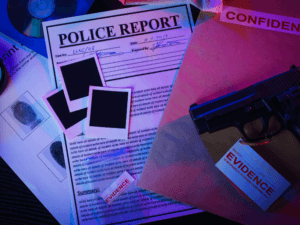When you are hurt because another individual or a business entity was careless, malicious, or simply didn’t do their duty to keep others safe, you deserve compensation for your damages, rather than to pay your bills yourself. Let’s walk through all the steps you will follow in a personal injury claim in Texas.
Steps in The Personal Injury Claims Process
Personal injuries come in a number of different forms. A person should know what they need to consider when determining whether it is possible or practical to start the personal injury claim process. It is best to consult with an experienced personal injury attorney when considering pursuing legal action after being injured due to the fault of another party.
The compassionate and award-winning injury lawyers of Liggett Law Group offer free consultations to all victims and their loved ones. Below, we go into detail about the various aspects of your situation we will discuss with you.
Determine if You Have a Personal Injury Claim
Have You Suffered Harm as a Result of the Injury?
The purpose of any personal injury claim is to obtain a financial award from the defendant to recover your losses. Texas state law breaks compensatory damages down into three categories: economic, non-economic, and punitive.
Economic damages allow a plaintiff to recover the financial loss suffered from an injury. This includes:
- Medical bills and ongoing medical costs
- Past and present wage loss
- Loss of employment
- Property loss, including the actual damage to property and future loss of property value
- Loss of past and future business opportunities
Non-economic damages allow a plaintiff to recover damages related to aspects of their life that are not easily quantifiable, which include:
- Pain and suffering
- Loss of enjoyment of life
- Loss of consortium (the inability to intimately interact with a spouse or close family)
- Emotional distress and anguish
Finally, in rare circumstances, a plaintiff can seek to recover punitive damages from a defendant. Punitive damages punish a party’s bad behavior that led to the accident. Punitive damages can generally be sought when the defendant acted with intention, malice, or a reckless disregard for the safety of themselves or others.
Do I have the Right Evidence to Support an Injury Claim?

Some of the most common forms of evidence gathered as a part of a personal injury investigation include:
- Police report detailing the accident
- Pictures of the accident scene and the surrounding area
- Medical treatment plans and diagnostics notes describing the injury
- Medical bills and property damage receipts for payment of damages incurred due to the injury
- Eyewitness statements about the accident
- Surveillance camera footage of the accident and the surrounding area
- Insurance policy information for the injured party and the party or parties that caused the accident
What is the Nature of Your Injury?
Personal injury claims encompass a wide variety of circumstances. Some of the most common personal injury claims arise from:
- Car accidents
- Pedestrian accidents
- Commercial vehicle accidents
- Motorcycle accidents
- Dog bites
- Premises liability cases
- Construction accidents
- Workplace injuries
- Plant explosion and oilfield accidents
When Did Your Injury Occur?
Texas has enacted a statute of limitations on personal injury claims, which precludes the filing of a claim after a specific timeframe. According to Texas state law, a plaintiff must file their claim within two years of the accident. For wrongful death claims, the two-year period commences once the injured person has died of their injuries.
According to Texas state law, a plaintiff must file their claim within two years of the accident.
Who Caused Your Injury?
Identifying the party that likely caused the accident is the most critical first step in an injury case. The legal system allows injured parties to seek financial compensation from those that caused them harm.
However, the injury victim must first identify the party that caused the harm in order to be able to take legal action against them.
Most personal injury cases fall under the theory of negligence, which includes the following factors:
- Duty: Did the defendant owe the plaintiff a duty of care?
- Breach: Did the defendant breach their duty of care by their actions or omissions?
- Causation: Did the defendant’s breach cause the accident?
- Damages: Did the plaintiff suffer harm?

What Caused Your Injury?
Identifying the source of harm is almost as important as identifying the party likely at fault. In many instances, identifying the cause of a personal injury can be relatively straightforward. For example, if you suffered whiplash in a rear end collision because a tailgating driver failed to brake before colliding with your vehicle, then the whiplash’s cause is easy to prove.

When Should I Contact an Attorney, and if so, When?

If you suffered a personal injury, the experienced injury claim attorneys at Liggett Law Group are here to assist. Our attorneys have years of experience successfully resolving personal injury lawsuits by securing compensation for our clients. Contact us today for a free consultation.
Set up a meeting with a top-notch personal injury attorney in your area. Generally, these meetings are free so the lawyer can assess your claim and determine if you have a valid case. They will let you know what to expect, how to proceed, and what level of compensation you can reasonably expect.
Your attorney will investigate all elements of your claim, gathering evidence and evaluating the severity of your injuries. They can connect you with medical professionals to estimate your future treatment needs and costs. Their team will interview witnesses and hire experts to testify on your behalf.
Many law firms have a team of researchers who will analyze and develop your evidence into a case. They can even hire an accident reconstruction expert to give a detailed description of what happened. This is especially useful in car, truck, motorcycle, and other vehicle accidents.
Submit A Demand Letter to the At-Fault Party’s Insurance Company for a Settlement Offer
Insurance companies will fight hard to avoid paying you. Some insurance representatives will blame you for your own injuries to minimize your claim. Negotiating with an insurance company successfully is much easier when they learn you’ve hired an attorney. Usually, you can often get a satisfactory settlement much faster without ever seeing the inside of a courtroom. Again, you’ll start with an insurance claim as a first attempt to obtain reimbursement for your expenses and compensation for your other damages. Your attorney will ensure every cost is accounted for, then send a demand letter to the insurance provider and/or liable party for the full amount.
Settlement Negotiations in a Personal Injury Claim
At this point in claims process the other party or parties have three options. They can
- accept the demand and pay you,
- reject the demand;
- or make a counteroffer.
If they reject or send a counteroffer, your personal injury lawyer will aggressively negotiate to ensure all your costs are covered while preparing to go to court. If you cannot reach an agreement with the insurance provider, you then move on to a personal injury lawsuit. This is a civil legal action against the party at fault for your damages so you can secure compensation.
If you file an injury lawsuit, you need a skilled personal injury attorney to go up against the defendant’s lawyer. The litigation procedures can be baffling if you have no experience with them. In addition, there are legal advantages you may not be aware of that your lawyer can put to use to argue more effectively for full financial compensation for all of your losses.
Free Consultation for Personal Injury Claims
The Lubbock, Texas personal injury lawyers of Liggett Law Group offer free consultations to all personal injury victims and their loved ones. Our experienced team has worked with hundreds of clients, helping them successfully resolve car accident claims, workplace injury claims, and more. If you or someone you know needs advice and isn’t sure where to turn, we can help.


